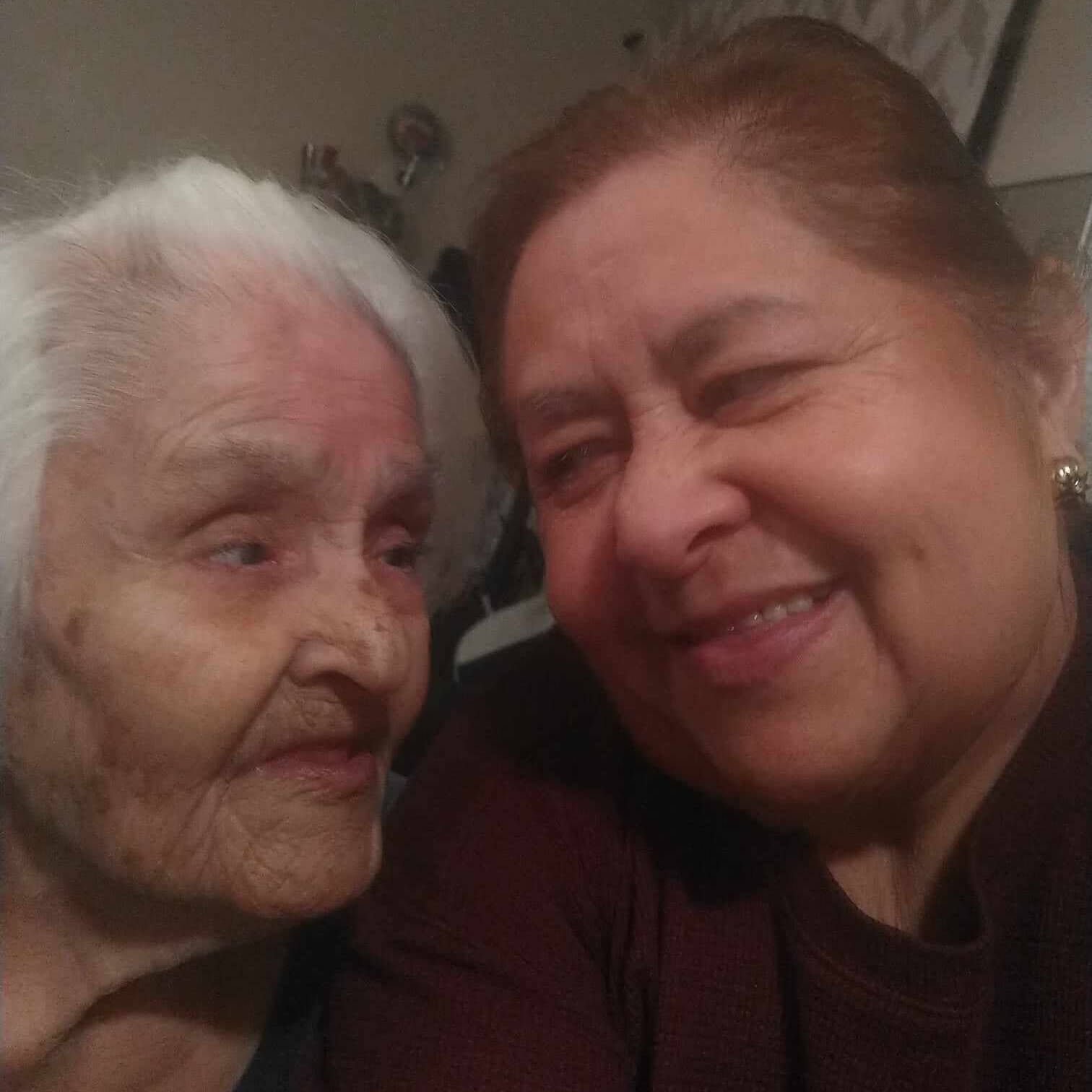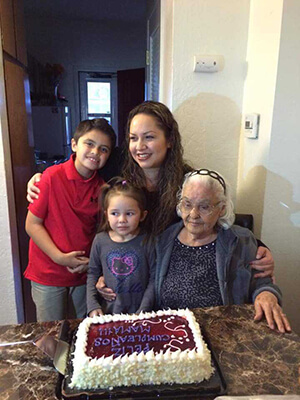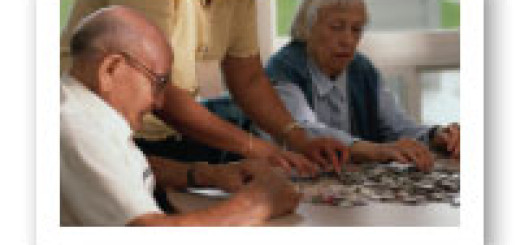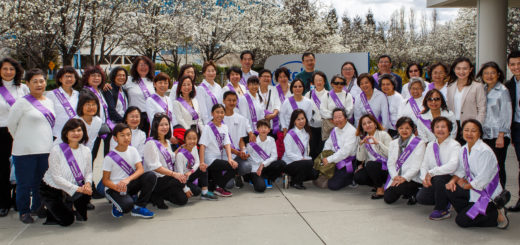Hispanic caregiver finds support from Alzheimer’s Association
Rosa Alonso thought her mother’s forgetfulness was just a sign of normal aging. When her mother was diagnosed in 2014 with dementia, Rosa didn’t know what that meant. It wasn’t until several years later, when she found the Alzheimer’s Association® that Rosa was able to get the support she needed. Rosa recently shared her story with the Bay Area’s ABC 7 and is retold here.
Just forgetful
Maria was a strong, independent woman who moved to the United States from Mexico. She loved her family and loved to sing. When she started showing signs of memory loss in the early 2010s, Rosa, Maria’s daughter thought it was just a normal sign of aging. “Sometimes, especially as the Latino community, we don’t want to say that somebody has Alzheimer’s,” said Rosa. “We’ll just say ‘Oh, they’re forgetful.’”
In 2014 Maria was diagnosed with dementia. According to the Alzheimer’s Association® 2023 Alzheimer’s Disease Facts and Figures report, Hispanics are 1.5 times more likely than Whites to have dementia. However, 57% of Hispanics believe that a significant loss of memory or cognitive abilities is a normal part of aging. Additionally, approximately 13% of Hispanics who are 65 or older have Alzheimer’s or another dementia.
Quitting her job
At the time of Maria’s diagnosis, it wasn’t possible for Rosa to keep her mother in her home. Maria lived in many different care settings over the years. However, after Maria fell for a third time in the care setting, Rosa knew she could do better. Quitting her job as a tax preparer, Rosa assumed the full-time caregiver role for her mother, and brought her home. “That was really depressing,” Rosa said. “Really sad. It’s just hard.”
Alzheimer’s has a profound impact on the workplace, especially for caregivers. The Facts and Figures report shares that 18% of caregivers in the United States went from full-time to part- time or cut back hours. While people like Rosa, who gave up working entirely, make up nine percent of caregivers. Initially, Rosa was also part of the 83% of caregivers who provide at home unpaid care for their loved one.
Luckily, Maria’s doctor told her about the In-Home Support Services Program (IHSS). The IHSS Program will help pay for services so that a person can remain safely in their home. While IHSS isn’t available for everyone, it is something worth looking into. Because Rosa had quit her job to care for her mother, the IHSS program enabled her to have a small income to help support her and her mother.
Finding support
While Rosa’s sisters were able to help in providing care for their mother, Rosa felt like there had to be more they could do. A friend of Rosa’s, who had previously used the Association services, suggested Rosa contact the Association to see if they could help. Taking her friend’s advice, Rosa went in person to the San Jose office where she was introduced to Sandra Green, a family care specialist who spoke fluent Spanish.
“When she came in, she was one of the caregivers that was crying,” said Sandra. “She told me ‘I didn’t know about this disease.’ [Being a caregiver is providing] 24/7 care and a lot of caregivers don’t have a break.”
Sandra was able to help Rosa qualify for a respite grant. Respite care involves short term or temporary care of the person living with the disease for a few hours or weeks, designed to provide relief to the regular caregiver. Sandra also introduced Rosa to one of the free Spanish speaking dementia caregiver support group offered by the Association.
With Sandra’s help, Rosa was also able to learn more about the disease through the education programs offered by the Association. Many classes provided by the Association are presented in both English and Spanish. They cover a variety of topics and are available throughout the year.
Encouraging others to join
While Maria sadly died earlier this year (2023), Rosa is grateful for the help she received from the support group and encourages other caregivers to attend. “Try to get help, because there are support groups that can help you,” Rosa said. “We used to meet and everybody talk about their experiences with their loved ones with Alzheimer’s. And sometimes I thought, ‘Oh, I don’t have it that hard.'”
When Maria was still alive, she never wanted to leave the house. The only place she would agree to visit was the San Jose rose garden. Now, when Rosa wants to feel closer to her mother, she visits the rose garden and thinks of Maria.
For more information on support groups please call our 24/7 Helpline at 800.272.3900. For more information on resources, the disease or services provided by the Alzheimer’s Association visit alz.org.



















